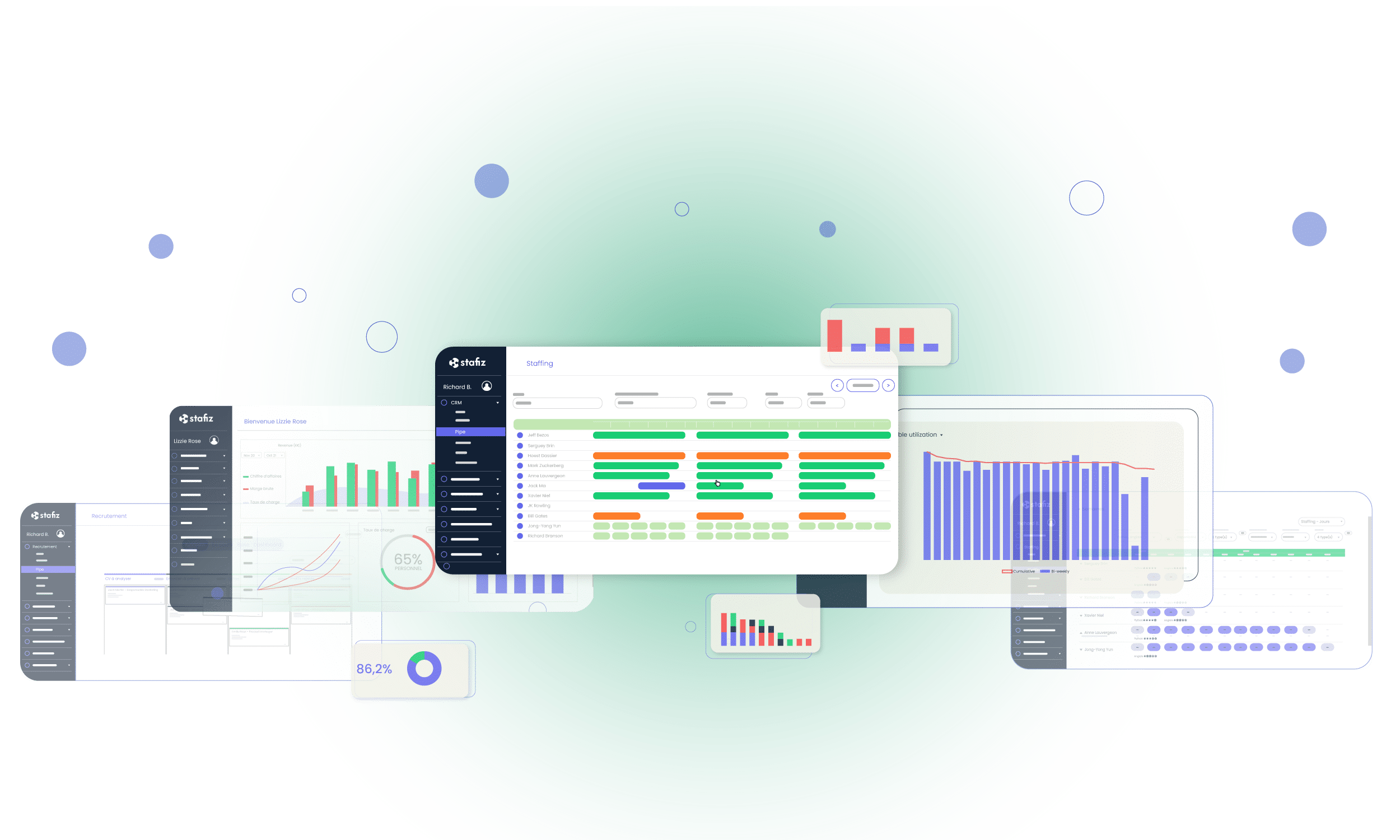DOSSIER - EVERYTHING YOU NEED TO KNOW ABOUT INVOICING FOR SERVICE COMPANIES
4. How do you manage complex billing arrangements?

In previous articles, we have seen how to estimate costs, monitor budget overruns and billing implications and finally manage cash flow by getting paid faster. In this article, we explore the complex methods of invoicing: deadlines and deposits, multiple addresses and entities but also electronic invoicing! Discover the links to all the articles in the dossier below:
1. How do you estimate costs, prices, and billing type for a billable project?
2. How to manage the risks of project overruns?
3. How can I get paid faster by customers?
4. How to manage complex billing arrangements
5. How do I take into account the invoicing of taxes? What about multi-currency billing?
6. How to manage invoicing between different entities of the same company (intercompany flows)
7. How can we simplify communication with customers?
8. How can I modify certain parameters that will impact invoicing during projects?
9. How to set up a project quoting and invoicing tool?
Multiple due dates management with instalments
When a project is long-term, it is important to optimize cash flow by negotiating deadlines with the client. Often, a deposit is invoiced at the start of the project, then various stages of progress serve as a trigger for the production of additional invoices, until the balance is invoiced.
For this type of invoicing to be properly used, the deadlines must be determined at the start of the project. For each of the deadlines, it must be defined whether it is triggered according to a date or the completion of a deliverable.
Billing to a different entity than the project entity
Sometimes projects for specific customers are billed to other companies. Although the client of the project is Company ABC, the billing is addressed to Company XYZ. Reporting must make it possible to reconcile these differences.
Complex billing addresses
Some companies, especially large companies, often have multiple billing addresses. Depending on the client entity, or the type of service, the address and the billing recipient may differ. It is necessary to register all existing billing addresses.
When the project is created, it must then be confirmed to which billing addresses of the customer the invoices should be sent.
Here again, project invoicing software simplifies the structure of databases, and the steps of setting up the invoicing of a project.
Electronic invoicing
In the context of e-invoicing in the various European countries, it is necessary to ensure that the project invoicing software allows the generation of invoices in the legally required formats.
Stafiz solves each of these points:
- Creation of project timelines : based on a projected date and/or deliverable
- Invoicing of the project to an entity different from the project customer : in Stafiz it is possible to invoice the customer and/or another company in the same project according to the invoices
- Management of billing addresses : Stafiz allows you to create all the billing entities attached to an organization so that you can choose the right one at the time of project creation
- Electronic invoicing : Stafiz allows you to manage incoming and outgoing invoicing in electronic formats to comply with the financial laws of each country.
The 9 problems of project invoicing and how does Stafiz help you solve them?
1. How do I estimate the costs, prices, and billing type for a billable project?
2. How to manage the risks of project overruns ?
3. How to get paid faster by customers?
4. How to manage complex billing arrangements
5. How do I account for tax invoicing and multi-currency invoicing?
6. How to manage invoicing between different entities of the same company (intercompany flows)
7. How to simplify communication with customers?
8. How can I modify certain parameters that will impact invoicing during projects?
9. How do I set up a project quoting and invoicing tool?
